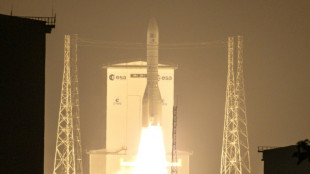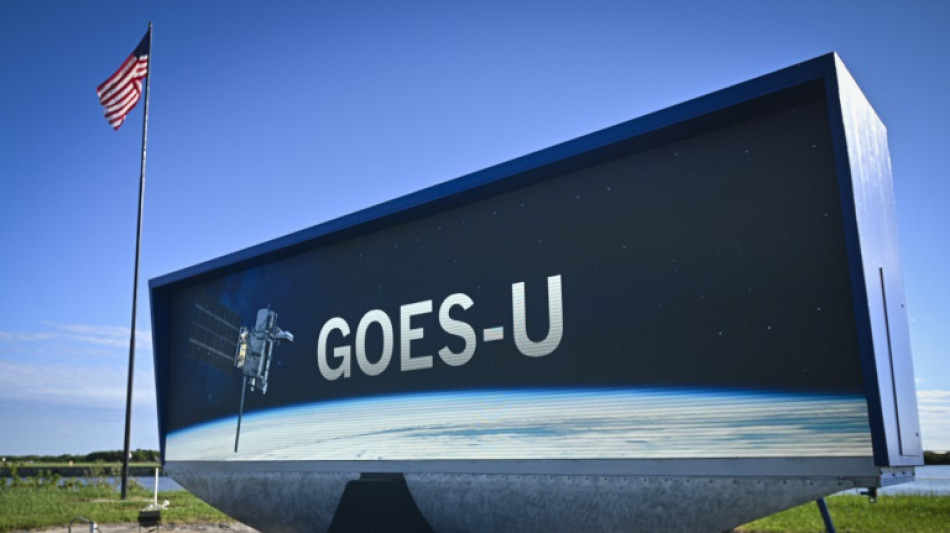
-
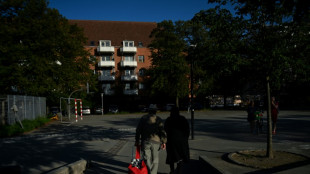 Danish 'ghetto' tenants hope for EU discrimination win
Danish 'ghetto' tenants hope for EU discrimination win
-
Cricket Australia boss slams technology as Snicko confusion continues

-
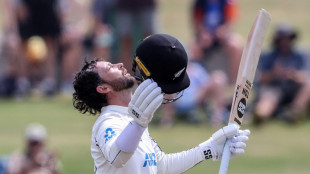 Conway and Latham's 323-run opening stand batters hapless West Indies
Conway and Latham's 323-run opening stand batters hapless West Indies
-
Alleged Bondi shooters holed up in hotel for most of Philippines visit
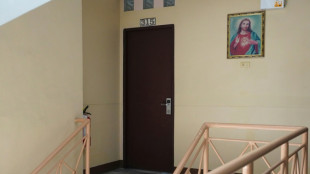
-
 Japan govt sued over 'unconstitutional' climate inaction
Japan govt sued over 'unconstitutional' climate inaction
-
US approves $11 billion in arms sales to Taiwan: Taipei

-
 England battle to save Ashes as Australia rip through top-order
England battle to save Ashes as Australia rip through top-order
-
Guarded and formal: Pope Leo XIV sets different tone

-
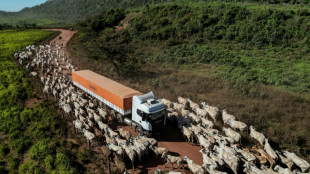 What to know about the EU-Mercosur deal
What to know about the EU-Mercosur deal
-
Trump vows economic boom, blames Biden in address to nation

-
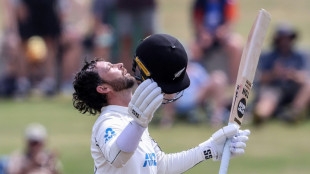 Conway 120 as New Zealand in command at 216-0 against West Indies
Conway 120 as New Zealand in command at 216-0 against West Indies
-
Taiwan eyes fresh diplomatic ties with Honduras

-
 ECB set to hold rates but debate swirls over future
ECB set to hold rates but debate swirls over future
-
Asian markets track Wall St lower as AI fears mount

-
 EU holds crunch summit on Russian asset plan for Ukraine
EU holds crunch summit on Russian asset plan for Ukraine
-
Australia PM vows to stamp out hatred as nation mourns youngest Bondi Beach victim

-
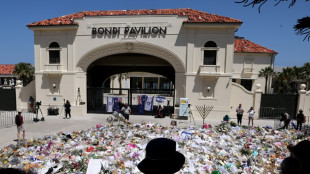 Australian PM vows hate speech crackdown after Bondi Beach attack
Australian PM vows hate speech crackdown after Bondi Beach attack
-
Turkmenistan's battle against desert sand
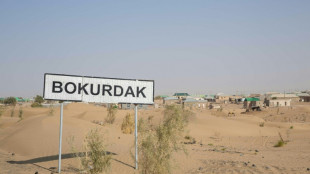
-
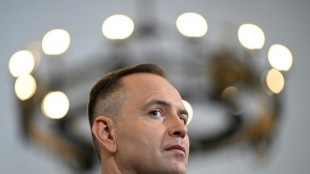 Ukraine's Zelensky in Poland for first meeting with nationalist president
Ukraine's Zelensky in Poland for first meeting with nationalist president
-
England in disarray at 59-3 in crunch Test as Lyon, Cummins pounce

-
 Japan faces lawsuit over 'unconstitutional' climate inaction
Japan faces lawsuit over 'unconstitutional' climate inaction
-
Migrants forced to leave Canada after policy change feel 'betrayed'

-
 What's next for Venezuela under the US oil blockade?
What's next for Venezuela under the US oil blockade?
-
Salvadorans freed with conditional sentence for Bukele protest

-
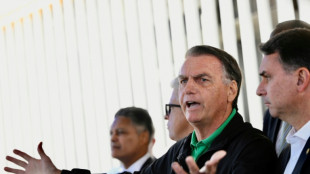 Brazil Congress passes bill to cut Bolsonaro prison term
Brazil Congress passes bill to cut Bolsonaro prison term
-
Cricket Australia boss slams technology 'howler' in Ashes Test

-
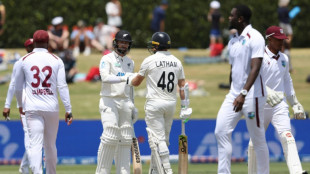 New Zealand 83-0 at lunch on day one of third West Indies Test
New Zealand 83-0 at lunch on day one of third West Indies Test
-
Ecuadorean footballer Mario Pineida shot and killed

-
 US government admits liability in deadly DC air collision
US government admits liability in deadly DC air collision
-
1933 Industries Announces Maturity of Unsecured Convertible Debentures and Encourages Conversion to Support Continued Growth

-
 Ex-podcaster Dan Bongino stepping down as deputy FBI director
Ex-podcaster Dan Bongino stepping down as deputy FBI director
-
Real Madrid scrape past third-tier Talavera in Spanish Cup

-
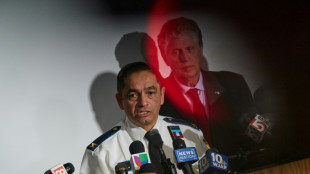 Hunt for US college mass shooter drags into fifth day
Hunt for US college mass shooter drags into fifth day
-
Cherki inspires Man City, Newcastle strike late to reach League Cup semis

-
 Barcelona, Lyon and Chelsea reach Women's Champions League quarters
Barcelona, Lyon and Chelsea reach Women's Champions League quarters
-
Venezuela reacts defiantly to US oil blockade, claims exports unaffected

-
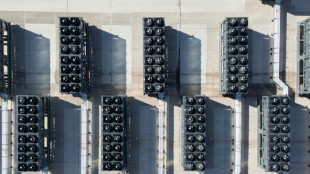 Nasdaq tumbles on renewed angst over AI building boom
Nasdaq tumbles on renewed angst over AI building boom
-
S.Africa expels Kenyans working on US Afrikaner 'refugee' applications

-
 US Congress ends Syria sanctions
US Congress ends Syria sanctions
-
Cherki inspires Man City cruise into League Cup semis

-
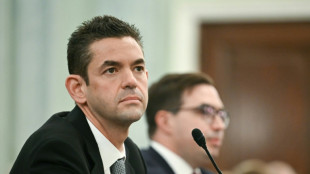 Billionaire Trump nominee confirmed to lead NASA amid Moon race
Billionaire Trump nominee confirmed to lead NASA amid Moon race
-
Mahomes undergoes surgery, could return for 2026 opener: Chiefs

-
 Melania Trump steps into spotlight in Amazon film trailer
Melania Trump steps into spotlight in Amazon film trailer
-
Brazil Senate advances bill that could cut Bolsonaro jail term
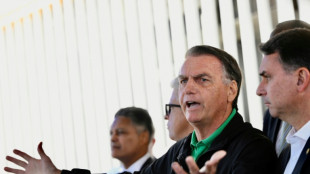
-
 Safonov hero as PSG beat Flamengo in Intercontinental Cup
Safonov hero as PSG beat Flamengo in Intercontinental Cup
-
Oscars to stream exclusively on YouTube from 2029

-
 Oscars to stream exclusively on YouTube from 2029: Academy
Oscars to stream exclusively on YouTube from 2029: Academy
-
CNN's future unclear as Trump applies pressure
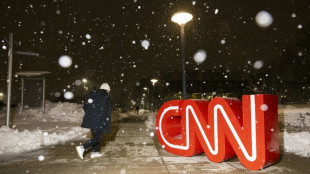
-
 Brazil threatens to walk if EU delays Mercosur deal
Brazil threatens to walk if EU delays Mercosur deal
-
Zelensky says Russia preparing for new 'year of war'

| SCS | 0.12% | 16.14 | $ | |
| RBGPF | -2.23% | 80.22 | $ | |
| BTI | -0.21% | 57.17 | $ | |
| RYCEF | 1.48% | 14.86 | $ | |
| RIO | 1.55% | 77.19 | $ | |
| BCE | -0.78% | 23.15 | $ | |
| NGG | 1.8% | 77.16 | $ | |
| CMSC | -0.34% | 23.26 | $ | |
| CMSD | -0.43% | 23.28 | $ | |
| RELX | -0.64% | 40.56 | $ | |
| GSK | -0.14% | 48.71 | $ | |
| JRI | -0.6% | 13.43 | $ | |
| VOD | 0.86% | 12.81 | $ | |
| BCC | 0.59% | 76.29 | $ | |
| BP | 2.06% | 34.47 | $ | |
| AZN | -1.66% | 89.86 | $ |

US to launch satellite to better prepare for space weather
The United States is aiming Tuesday to launch a new satellite expected to significantly improve forecasts of solar flares and coronal mass ejections -- huge plasma bubbles that can crash into Earth, disrupting power grids and communications.
A SpaceX Falcon Heavy rocket is set to carry the satellite into orbit from NASA's Kennedy Space Center in Florida, though weather so far appears unfavorable for the two-hour launch window opening at 5:16 pm (2016 GMT).
The GOES-U (Geostationary Operational Environmental Satellite U) mission is a collaboration between the space agency NASA and the National Oceanic and Atmospheric Agency (NOAA).
It will be the fourth and final in the GOES-R series of satellites that have tracked hurricanes and tornadoes, monitored climate and sea surface temperature, air quality and even meteor detections since 2016.
Orbiting 22,236 miles (35,785 kilometers) above the equator, the satellites match the speed of Earth's rotation in order to hold their positions over specific regions and provide continuous coverage.
They "are an indispensable tool for protecting the United States and the one billion people who live and work in the Americas," Pam Sullivan, of NOAA said in a press conference.
GOES-U is the first of the four to include a coronagraph, called the Compact Coronagraph-1 (CCOR-1). Coronagraphs block the Sun's disk and allow observation of its outermost layer, called the corona.
"That allows us to observe large explosions off the sun, called coronal mass ejections that can hurtle billions of tons of matter at millions of miles per hour towards Earth," said Elsayed Talaat, in charge of space weather observations at NOAA.
The ejections, known as CMEs, can disrupt Earth's magnetic field, causing satellites, energy infrastructure, and navigation systems to go down. Collecting space weather data allows authorities to issue warnings one to four days in advance.
In early May, the planet experienced its first level 5 geomagnetic storm in two decades, the highest rating on the scale, which unleashed spectacular auroras worldwide.
With the new coronagraph, the speed and direction of this event could have been better understood from the start, said Talaat.
Major disruptions weren't felt, but some farmers "reported being unable to plant their crops because the precision GPS relied upon by their equipment had malfunctioned," he said.
For the first time, the United States will have a coronagraph observing the solar corona almost continuously, with the CCOR-1 taking readings every 30 minutes.
Currently, such observations are received with a delay of up to eight hours. They are carried out by a satellite launched in 1995, which should cease operating within two years.
"Once operational CCOR-1 will mark a new chapter in space weather observations," said Talaat.
"Although the sun is no more active than in previous generations, our society has changed, and we are more sensitive than ever to the sun's changing mood."
P.Costa--AMWN
